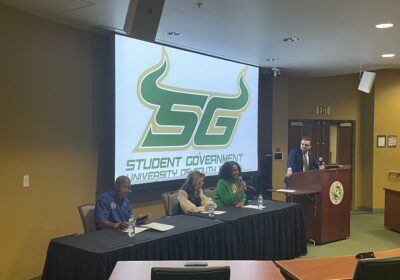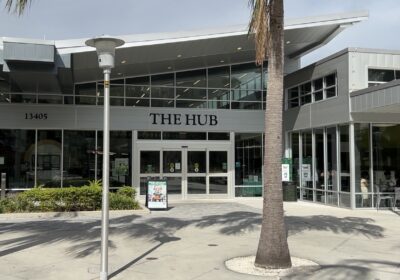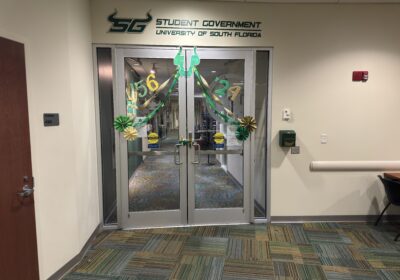USF plans to place 1,000 solar panels on top of MSC

The $1.2 million solar pannel project will produce the equivalent output of 39 homes. The project is expected to be completed in late may. SPECIAL TO THE ORACLE
The Student Green Energy Fund (SGEF) oversees all sustainable projects that are in accordance to the Climate Action Plan initiative to reduce greenhouse gas emissions on campus.
The next is a $1.2 million solar panel project to be installed on the roof of the Marshall Student Center (MSC).
The amount of energy powered by the nearly 1,000 panels will be the equivalent to the annual energy use of about 39 homes — producing approximately 525,000 kilowatt-hours per year, according to Aaron Nichols, assistant director of Communications.
“The more we save on our carbon footprint, the more we save on unnecessary energy costs,” Nichols said. “The MSC has a vast amount of roof space, with some already devoted to solar energy generation. This project will build on the existing solar energy installation and provide the building with more solar energy, bringing it closer to being carbon neutral.”
This new development will reduce USF’s carbon footprint by an estimated 370 metric tons of carbon dioxide per year.
“It’s the first large-scale project of its kind — it took three years to put this proposal out for funding,” said John Pilz, student principal investigator for the project.
While design development is still underway, construction is expected to begin in late March, with the anticipated completion date in late May or early June.
The funding for the project is a combination of the Administrative fees and Facilities Planning budget.
“The students in corroboration with administrators and the professionals involved in the process from outside the university give cost estimates before approval to determine the cost,” Pilz said.
Pilz led the extensive proposal process of requesting approval using a Space Impact Form to determine the viability of the location.
After presenting the project, it was assessed by the SGEF Council of students, faculty and administrators to determine the feasibility of the project.
A major setback for the project was the responsibility to manage the project independently.
“Students are no longer asking a big administration to do these jobs — it’s another administration collaborating with other departments,” Pilz said.
Pilz said one of the biggest components to this particular project coming to fruition was collaborating with Sujit Chemburkar, director of the MSC. Together, they were able to bridge the gap between students and administration.
Now, Nainan Desai and Antonio Lorurenco of Facilities Management actively work with students to guide them through the planning and implementation process.
Information on the project will be displayed inside the MSC to show the amount of energy generated by the solar panels.
“The installation at the MSC will educate students on SGEF’s intent and inspiration for involvement in their USF community and the future of the school,” Pilz said.
Working with SGEF on multiple Green Energy Projects, Pilz was an active participant in project planning. Another upcoming development is a solar panel initiative partnership with the energy company, TECO, to install solar panels on top of the Richard A. Beard Parking Garage.
Right now, the project is seeking approval from the USF Board of Trustees, according to Pilz.
Student Body President Chris Griffin — a member of the Board of Trustees — is still considering the project, but SGEF is in full support along with the community collaborator, TECO.
“The MSC solar panel project inspired TECO to collaborate with USF and offer their resources to help USF become a 100 percent renewable powered campus,” Pilz said.
Pilz met with TECO representatives and suggested a symbiotic partnership for both USF and TECO to benefit from selling the energy collected for the school to receive renewable credits.
“The ultimate goal is to make institutions reliant on renewable energy and less reliant on fossil fuels to offset carbon emissions—now we are one step closer,” Pilz said.
CORRECTION: in an earlier version of this story it was stated that Sujit Chemburkar was with Facilities Management. He is the director of the Marshall Student Center.






